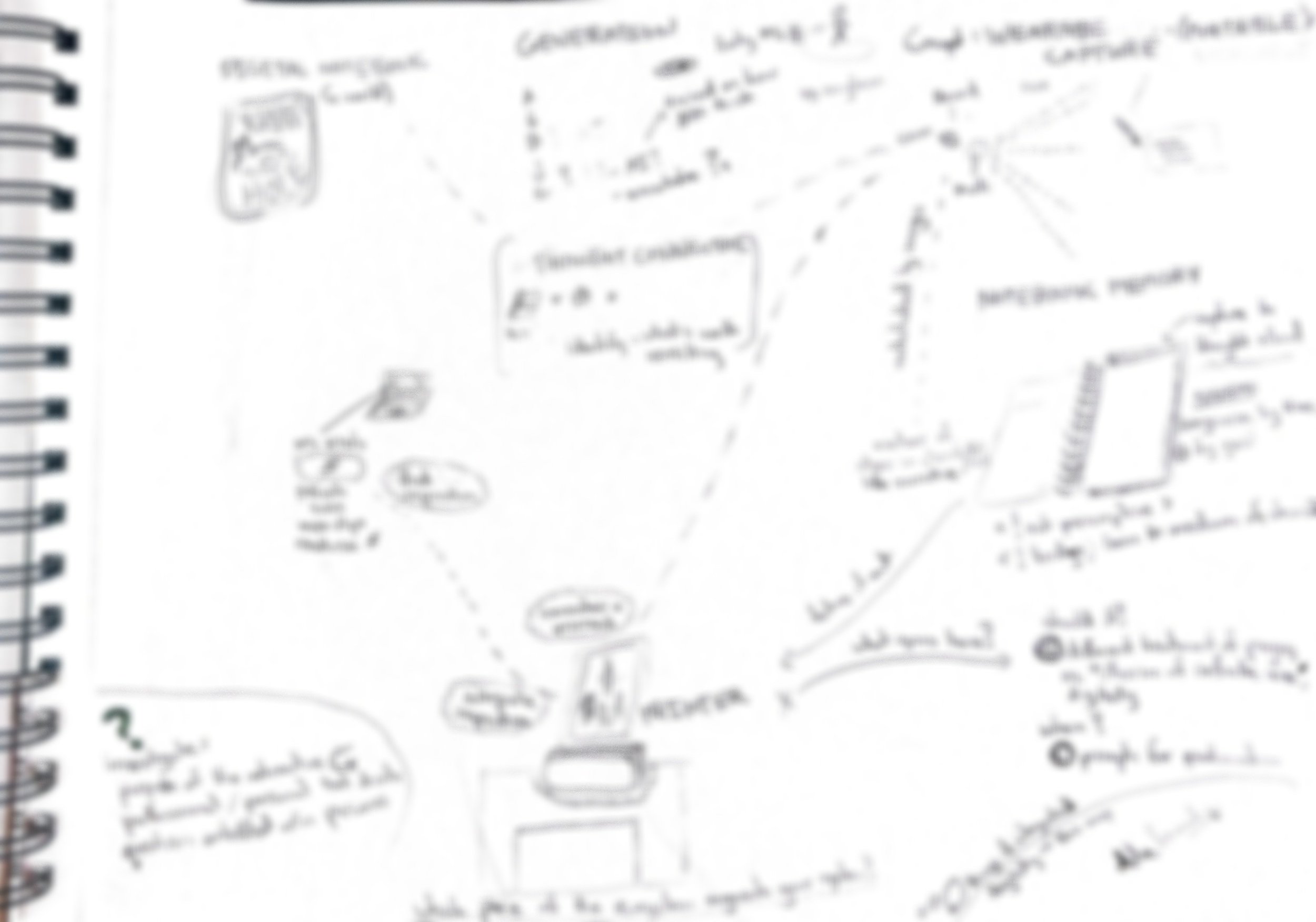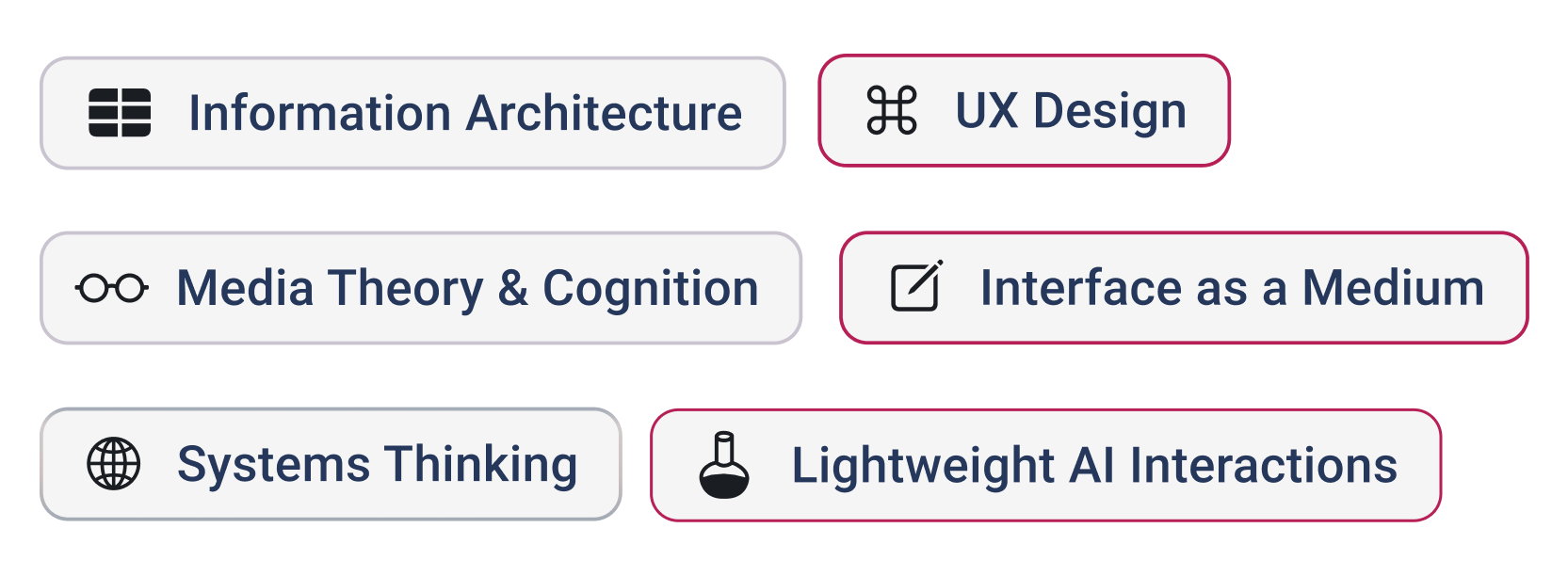
Rem (M.S. Thesis → Independent Project)
A Tool for Thought Built for Creatives
October - December 2024: Defining the Problem
January - March 2025: Building a Solution

Designing for Momentum
Rem transforms static note storage into an intelligent recall layer, re-engaging users with forgotten ideas by tracking metadata, capture context, and behavioral patterns.
Intention? Bridge past thoughts with present momentum.
Preview
The full case study is password-protected. If you’re reviewing applications or would like to explore the design system, please reach out.
Research Methods
Problem Finding
User Interviews · Cluster Analysis
Market Research
Competitive Landscape Review · Trend Mapping
Feature Design
Card Sorting · Tree Testing · Usability Testing
Build
Product Requirements Document (Full Scope incl. MVP)
Development
Currently in Progress

Rem is opinionated
Ideas don’t arrive neatly categorized → Tools should accommodate mess before asking for structure
Capturing is only half the job → Retrieval and reactivation are just as essential to creative flow
Creative thought is nonlinear → Interfaces should enable exploration, not enforce hierarchy
Friction can be useful → A little effort at the right moment can prompt deeper reflection or intentionality
Memory is contextual → Resurfacing should be sensitive to timing, patterns, and relevance
Metadata is valuable but often skipped → Assistive AI should reduce the cost of organizing without forcing decisions
The interface is a thinking partner → The tool should stimulate connections, not just store information
Too much structure too early kills momentum → Let users move quickly first, organize later if needed
Play is productive → Discovery and surprise are part of creative work, not distractions from it




